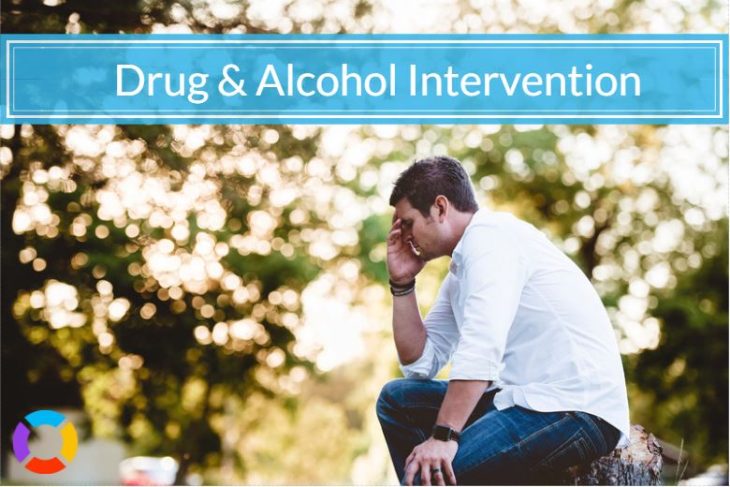How to Stage an Intervention for a Loved One Struggling with Addiction

Watching someone you love spiral into addiction is heartbreaking. Every unanswered call, broken promise, missed holiday and fading spark feels like another piece of them slipping away. The fear of losing them can be overwhelming, yet hope remains. An intervention can be the lifeline that bridges the gap between denial and the decision to seek help.
By gathering loved ones in a safe, nurturing and structured setting, an addiction intervention offers compassion, truth and a clear path toward treatment.
Learning how to have an intervention and the best approach can transform desperation into action. This can give someone you love the chance to reclaim their life before it’s too late. An intervention can bestow hope for the person who is experiencing addiction and their loved ones.
Call today for more intervention information and resources.
What Is an Intervention?
A treatment intervention is a structured, planned process designed to encourage a person struggling with substance abuse to accept help. Unlike casual talks or emotional pleas, interventions follow a thoughtful strategy involving family, friends and sometimes professional administrators.
It is more than a conversation. It is an organized effort to break through denial and inspire change. The goal is to present concerns with compassion, share specific examples of harmful behaviors and outline treatment options.
Planned interventions create a supportive environment where the person can recognize the seriousness of their situation and take the first step toward recovery.
There are two types of intervention styles: The Johnson Model and the Invitational Model.
The Johnson Model is a confrontational approach where planning is essential. The person is surprised with a meeting where loved ones express their concerns and set boundaries.
On the other hand the Invitational Model is more collaborative. It is an open approach where the person is invited to participate in a series of meetings, knowing about the purpose and format in advance.
Do Interventions Really Work?
Research shows that interventions can be an effective tool for encouraging individuals to seek treatment. While success rates vary, studies suggest that structured, professionally guided interventions result in treatment entry for approximately 80-90% of participants.
The intervention process works by confronting the identified person in a compassionate, organized manner, highlighting the impact of their behavior and presenting a clear treatment plan.
Even if the person initially refuses to accept treatment a seed can be planted for future change, and many individuals later reflect on the concerns of their loved ones.
Not sure if an intervention is right for your loved one? Call today.
Interventions also provide families with communication strategies and boundaries that reduce enabling behaviors, further increasing the likelihood of recovery over time.
The question “do interventions really work?” is best answered by understanding their dual roles; motivating immediate treatment in many cases, while laying essential groundwork for eventual change. When thoughtfully planned, interventions are a powerful step toward breaking the cycle of addiction.
When to Stage an Intervention
Knowing when to stage an intervention can be the difference between life and death.
Many believe you must wait until a loved one hits “rock bottom,” but this is a dangerous myth. Signs it is time to hold an intervention include escalating substance use, declining physical or mental health, damaged relationships, financial trouble or legal issues.
Every action can prevent further harm and increase the chances of recovery. If you’re unsure how to get an intervention for someone, seek guidance from an addiction professional who can help plan the process with compassion, structure and support before the situation becomes more severe.
Types of Interventions for Different Substances
For the best possible outcome, interventions must be tailored to the substance involved, as each presents unique challenges.
- Alcohol intervention often involves addressing denial and enabling behaviors from loved ones, emphasizing health risks and the need for treatment.
- Heroin/opioids intervention requires urgency due to high overdose risk, stressing immediate detox and treatment continuum of care.
- Stimulants (cocaine, meth) intervention focuses on managing mental health volatility, such as paranoia or aggression, while guiding toward structured treatment.
- Benzo’s intervention highlights the dangers of sudden withdrawal, urging medically supervised detox to prevent life-threatening complications.
- Marijuana intervention addresses perception challenges, confronting the belief that it’s harmless and explaining how dependency impacts motivation, relationships and mental health.
By customizing alcohol interventions, drug interventions, and approaches for heroin, cocaine, meth, marijuana and Xanax misuse, families can better connect with their loved one, break through resistance and encourage a safe transition into recovery.
How to Plan and Stage an Intervention Step-by-Step
A successful intervention is carefully planned and follows specific steps for preparation and execution of the intervention.
Step 1: Learn About Addiction and the Interview Process
- Before staging an intervention, understand addiction as a brain disease. Research the intervention process and read success stories to prepare for an effective intervention for addiction.
Step 2: Choose Your Intervention Team
- When holding an intervention select four to six calm, supportive individuals who truly care. Knowing how to have an intervention means choosing people who will follow the plan.
Step 3: Consult a Professional Interventionist (Optional)
- An interventionist for a loved one can be invaluable, especially with mental illness or violence risk. They know how to do an intervention and address intervention addiction challenges.
Step 4: Create a Structured Intervention Plan
- Plan an intervention by setting the time, place, roles of the invited loved ones and a clear treatment offer that outlines the person’s best options for recovery.
Step 5: Write Intervention Letters
- Know what to say during an intervention. Use “I” statements, show love, avoid blame and keep intervention points focused.
Step 6: Set Boundaries
- An intervention plan for drug addiction must include firm consequences if treatment is refused.
Step 7: Hold the Meeting
- When hosting an intervention each person reads their letter, offers help and asks for a decision, which is key in any drug addiction intervention.
What If They Say No to Treatment?
A “no” after an intervention can be discouraging, yet it’s common. This doesn’t mean the end of the recovery journey. In process interventions the goal isn’t always immediate agreement.
It’s planting the seed for change. Families should remember that “why interventions don’t work” is often a misconception; the process works over time, influencing the identified person’s readiness.

If treatment is refused, maintain the boundaries discussed during the intervention. Boundaries protect your well-being and reinforce that harmful behaviors have consequences.
Continue to show empathy without enabling destructive patterns and harmful behaviors. Stay consistent with your message, keep communication open and look for opportunities to reintroduce help.
Many people enter treatment later after reflection on the concerns raised. Understanding how an intervention works means accepting that the progress can be gradual, and your steady support, combined with firm limits, can eventually motivate your loved one toward saying “yes” to recovery!
What if They Say Yes to Treatment?
If the intervention results is a “yes,” act quickly to turn that decision into action. Arrange safe transportation to the chosen treatment facility… ideally the same day to avoid second thoughts.
Have all necessary paperwork ready, insurance details and medical history, to streamline the admission process. Most programs will guide you step-by-step, but being prepared shortens delays.
Call now to learn more about addiction treatment today.
While your loved one begins treatment, use this time to focus on your own healing. Learn how an intervention works as part of a larger recovery journey, which includes family counseling, education and boundary-setting.
Many treatment facilities offer family programs that help you understand addiction, improve communication and break enabling patterns. Remember this is the start of a process, not the finish line.
Staying engaged, informed and supportive will strengthen your loved one’s chance of long-term recovery while also fostering healthier relationships within the family.
How Families Can Heal After the Intervention
Family healing begins the moment an addiction intervention takes place, regardless of the loved one’s immediate response. Once the intervention is over, it’s essential for the family to start its own recovery process.
Addiction impacts everyone, not just the individual struggling. Breaking unhealthy patterns requires intentional effort. Families can benefit from therapy, recovery coaching, and structured addiction intervention resources that provide education and coping strategies.
Support groups like Al-Anon or Nar-Anon offer a safe place to share experiences, reduce isolation, and learn from others who understand the challenges.
This family support after an intervention is not about controlling the addicted person’s choices. It’s about building resilience, setting healthy boundaries, and restoring emotional balance.
Healing is a gradual process, but by committing to self-care and ongoing education, families can create a healthier environment that supports long-term recovery for everyone involved. Your recovery journey matters just as much as theirs.
Intervention FAQs
Staging is the planning phase; holding is the actuarial meeting.
Yes, but a trained interventionist increases success rates and safety.
Typically 4 to 6 supportive individuals.
Yes. Structured alcohol interventions often lead to treatment acceptance.
Research addiction, choose a team, plan, rehearse, meet, and follow through.
Begin with planning, setting clear goals, and having a treatment plan ready.
Select a quiet and private space. Stick to the plan and stay calm.
Download: Intervention Planning Checklist
Planning an intervention can feel overwhelming, but having the right tools makes the process smoother and more effective. Download our practical checklist, to learn how to plan a successful intervention step-by-step.
Download the Intervention Planning Checklist here.
This tool includes clear roles, timelines, letter templates and expert tips to help you confidently hold an intervention with a positive lasting impact.



